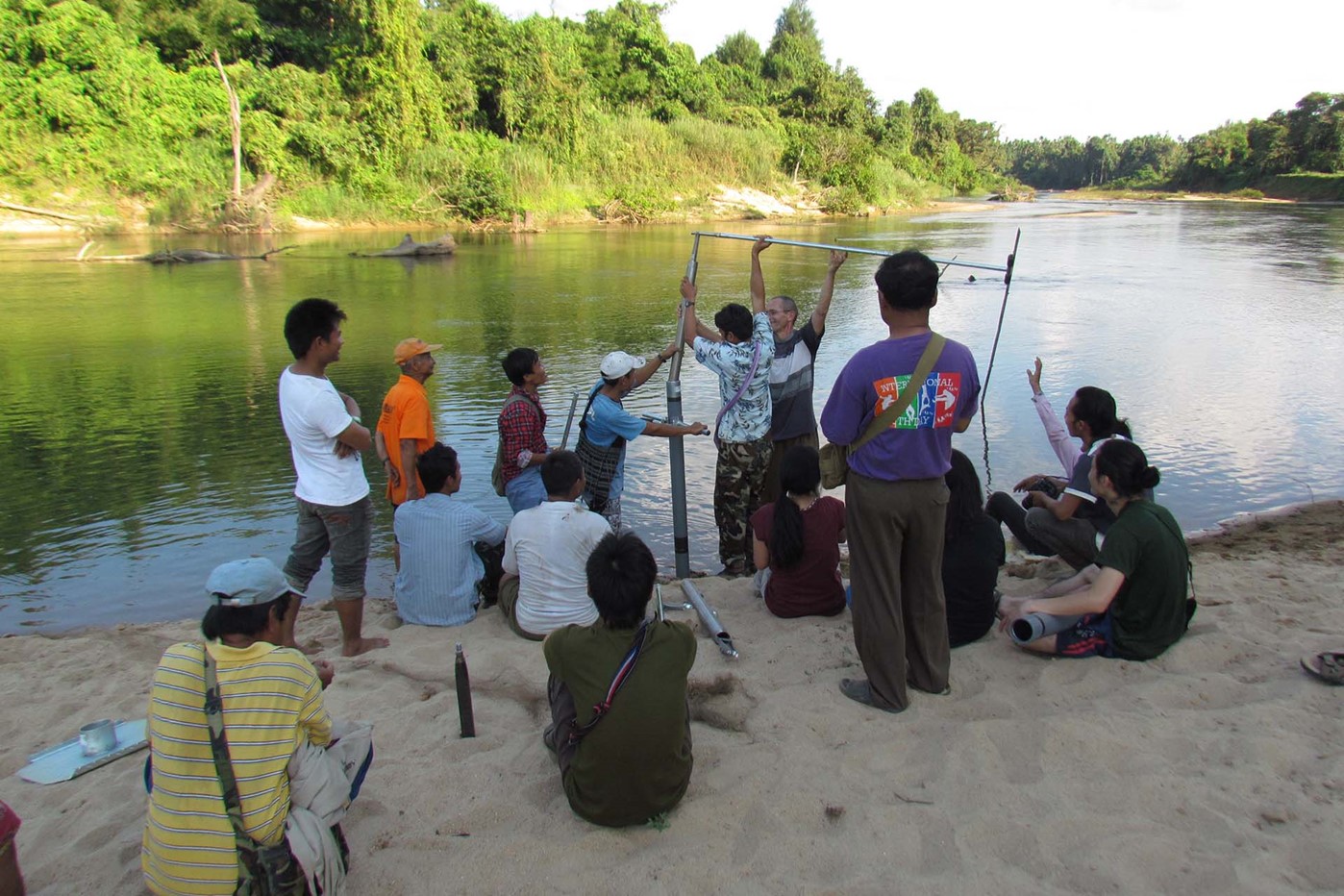
In 2014 Lex van Gelder went to Burma (Myanmar) for the second time. This time to help the local population with getting access to clean drinking water. With the help of his wife Rini and equipment donated by Eijkelkamp Foundation he was able to accomplish this.
In the more poorer rural areas in Burma the villagers still live a very traditional life. This means without public utilities, almost no cell phone reception en without certainty of reliable drinking water. This last point is mainly caused by the ever expanding mining operations in the area that pollute the rivers that many villagers depend upon.
By digging wells the people try to be less dependent on the river. The way they do this however, remains very primitive. First and foremost the villagers look for a place they would like a well. When such a location is decided upon one starts to place metal sheets or pan lids on the floor. Within a few days the lids get picked up again to see which one collected the most moist. When they find it, that will be the place where the villagers start digging. This way it remains unknown how deep the water is, if there are any large boulders in the ground that can’t be dug through or if there are any other factors that could cause problems. Because of all this it is not uncommon that people dig for days to end up with nothing. With the new bailer auger from Eijkelkamp Soil & Water the villagers can now drill more effectively and efficiently.
‘It’s not hard to explain how the drill works, but if you really want the villagers to know how it works you have to show it to them in the field. To keep this as clear as possible we held the demonstration at a sandy riverside. This way one can see more easily how the drilling works. The locals are often amazed to see how fast you can get a few metres deep into the ground.’ Lex van Gelder says. ‘At the moment our main concern is to make sure the villagers get the experience necessary to use the drill effectively. Afterwards we can focus on soil research so that good drilling sites can be located more easily. Once we start placing water pumps we can also start using the water filters provided by the Eijkelkamp Foundation to ensure even cleaner water. The first experiences using these are very positive.’
The Bailer sampler from Royal Eijkelkamp is also used to research water contamination near a local coalmine. The soil in Burma is rich in natural resources and in these desolate areas the mining companies can still work and expand without any restrictions. As a result the nearby water was very acid (pH 3). By educating the local villagers we can empower them to better resist the mining companies.
Now the project has come to an end, Lex van Gelder looks back with positivity. His final remarks on the project are: ‘One thing is for sure, the people are very grateful for all the help and care they receive. The villagers are very involved and happy the rest of the world has not forgotten them in this remote part of the planet. By training them and providing them with information, we’ve definitely contributed to a freer and more independent society.’